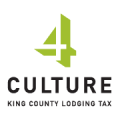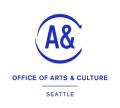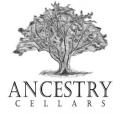HRVATSKI JEZIK , CROATIAN LANGUAGE Who Are The People In Your Family
By John Morovich
Today in the age of testing one’s DNA to find out one’s ethnic background and finding lost relatives, many Croatian Americans too, are constructing their family trees. In researching old documents and trying to decipher often times difficult to read penmanship, folks are encountering Croatian words that do not have English equivalents. Specifically, in the case of family names unique to the Croatian language. This year at CroatiaFest we will have a panel with all of the possible family names you may encounter in your research.
Names of immediate family members are pretty straight forward. Father is otac and mother is majka or mati; brother is brat and sister is sestra. Diminutive names for these family members include tata, mama, braco and seka.
Grandparents are called djed and baka in literary Croatian, but in many dialects and outside influences, they can be called dida and baba, or nono and nona. Something unique to Mrkopalj in the Gorski Kotar region, grandparents are called stari tata and stara mama.
For females:
The father of my husband - svekar
The mother of my husband - svekrva
Brother of my husband – djever
Wife of my husbands brother - jetrva
Sister of my husband – zaova
Husband of my husband’s sister – zaovac
For males:
Father of my wife – punac or tast
Mother of my wife – punica
Brother of my wife – šurjak
Wife of my wife's brother – šurjakinja
My wife's sister – svastika
Husband of my wife’s sister - svak
Upon first glance, this may seem straight forward, but things can quickly get confusing to the English speaker, particularly when it comes to aunts, uncles and cousins.
While in English, our parents’ siblings and their spouses are all our aunts and uncles, in Croatian your father’s brother is your stric and his wife is your strina. Your mother’s brother is your ujak or ujko and his wife is called ujna. There is of course an exception to that rule in parts of Dalmatia, where everyone is either teta or barba. Unique to Dubrovnik is the use of the word dundo for uncle.
Because in past generations, families were so large in number, it was important to know how everyone was related. This is particularly the case when it comes to cousins.
For this article, let’s look at just the father’s side. The son of my father’s brother in general terms is called stričević or bratućed (but spefically if I am a male) he is called izvanji sinovac and his son izvanji prasinovac. (If I am a female) he is called izvanji bratić and his son izvanji prasinovac. His daughter, (if I am male) she is called izvanja sinovica, and her daughter izvanja prasinovica.
Please stop by the CroatiaFest Art Gallery or the Kako Se Kaže booth to view the entire panel and find out the names of the people in your family!
Index
- WHAT CAN CROATIA DO FOR YOU
- 20 Years of CroatiaFest
- Trg Kralja Tomislava, Zagreb, Croatia
- FAMOUS CROATIAN STATUES
- HRVATSKI JEZIK , CROATIAN LANGUAGE Who Are The People In Your Family
- KRALUS
- CROATIAN TRADITIONS By Cathryn (Mirkovich) Morovich
- AMERICAN CROATIAN CLUB OF ANACORTES CELEBRATING 45TH ANNIVERSARY
- The Early Croatians of Old Tacoma in Pierce County
- Traditions
- Passed On Croatian Traditions
- Coffee-Break Treats From The Old Days
- Augie's Tavern, Cle Elum
- The "Bakalar" Notebook
- Remembering Basement Food
- Lowman Lunch
- Did You Know?
- Hrustule - a Croatian Christmas tradition
- The Tony Maglica Story
- Famous Pioneer of Silicon Valley: Victor Grinich
- UNESCO
Have a good story? Why not share it?
Send your story to info@croatiafest.org.









